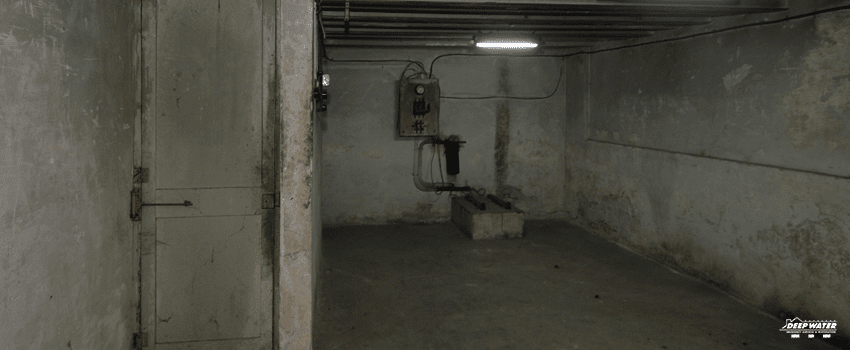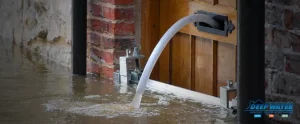Basements are one of the most interesting areas in a house. This underground room can be used for various purposes, including storage space, extra living area, or workspace.
However, if you’re planning to build a basement in your home, keep in mind that it will be part of your home’s foundation. It means that the structure you’ll build around the room, particularly the walls, will play an important role in your home’s structural integrity.
Basement Wall Types
Whether you intend to use it as storage or living space, you should carefully consider what type of walls you will use for your basement. This article provides you with all the options to help you choose the right one that would suit your needs. Read on to learn more about the different types of basement walls:
1. Poured Concrete
Concrete is themost popular typeof material when it comes to building a wall for your basement. It is sturdy and can withstand wear and tear while requiring little to no maintenance. When using poured concrete to construct the walls, the work normally involves pouring concrete at the foundation’s footing.
For poured concrete basement walls to stay in place before drying, forms are used with the insides often heavily oiled before the concrete mix is poured. When the concrete dries up, the forms are removed, and a solid structure will remain. This creates a strong wall that is resistant to damage.
2. Concrete Block
Sometimes called masonry, concrete block is the most cost-effective basement wall option.Cinder blocksare used to build this type of wall. The hollow blocks are set using steel rebars to keep the blocks in place and to provide extra sturdiness. Then, concrete is poured into the spaces between the blocks and the hollowed areas of each block. When the concrete hardens, it will form a sturdy wall that’s strong enough to withstand a tremendous amount of weight.
One major drawback of concrete block walls is that it’s susceptible to water damage. Because cinder blocks are hollow, water can easily seep through the mortar between the blocks. This can lead to leaks in the floor and the wall joints.
3. Precast Panels
Precast concrete wall panels are walls made ofhigh-strength concrete mixthat uses less water than the standard concrete mix. The higher concentration of concrete makes this one of the toughest basement wall options that you can consider. It’s also faster to install since the panels are pre-fabricated elsewhere and then transported to the job site.
While the panels themselves are pretty much waterproof, the problem usually lies with the quality of the assembly, specifically when spaces between the walls and the floor aren’t properly waterproofed.
4. Stone or Clay
These types of basement walls are often found in older houses. They were quite popular decades before but were chosen only when other materials were unavailable. Although stone or clay walls are strong, groundwater can easily seep through them, which makes them susceptible to water damage.
5. Cement Board
A cement board is ideal as a basement wall material because it is waterproof. It is often recommended as a backer for ceramic tiles, especially in areas of the home that are often damp. It is also resistant to mold and can give your basement a sophisticated look. However, it is heavy, expensive, and difficult to cut.
6. Drywall Panels
Drywall offers you a quick way to build the walls of your basement. This material is easy to install and is specially made for moist areas of the house, such as the basement. Drywall panels are also affordable and can be easily repaired if they suffer from damage.
7. Brick Veneer
If you want your basement wall to last long, brick veneer is a viable option. Made from thin slats of brick, this is quite popular in homes with that distinct executive appearance. The only drawback to using brick veneer is the higher cost.
8. Plastic Paneling
Plastic paneling is ideal for basements built in humid places where water seepage through cracks in the walls could lead to leaks. Basement plastic wall panels boast a feature that allows it to drain water into a trough installed behind the wall. Other than this, plastic panels are inexpensive and simple to install. However, they can be easily damaged.
9. Plywood Paneling
Plywood paneling can be used to cover a large basement area. The wood is normally treated to make it waterproof or at least become resistant to water, but this does not apply to decorative wallboard panels that you might want to consider when adorning the wall.
Plywood paneling can either be laminated or sanded. The latter is made from thin layers of wood veneer and can be painted, stained, or left as is. Laminated plywood paneling is likewise thin and widely used, although it is prone to damage.
10. Wood Planks
When finishing a basement using wood planks for the wall, materials such as cedar, redwood, birch, and knotty pine are often used. The latter is a popular basement material and is in great demand. Wood planks are known for their durability but are not fireproof and can be rather costly.
Key Takeaway
Not all basements are the same, and many are left unfinished. This is probably because most basements are often used as storage areas, so they are hardly given much attention. This should not be the case because basements can be considered part of the house’s foundation.
Given this, homeowners should seriously think about the type of wall that their basements should have. Poured concrete is the most popular, but many other basement wall ideas are available. The key is to ensure that your basement wall is generally strong so that it can withstand all sorts of disasters.
Contact Deep Water Emergency Services and Mitigation if you need help dealing with water damage in your basement.
Many homes’ basement is prone to water damage as it’s the lowest point of the house. When water damage strikes, your best option is to contact Deep Water Emergency Services and Mitigation. We are the specialist in property mitigation, and ourwater damage mitigation Denver, COteam will prove this when you reach out to them for assistance. Rest assured that we can help you recover as soon as possible.






